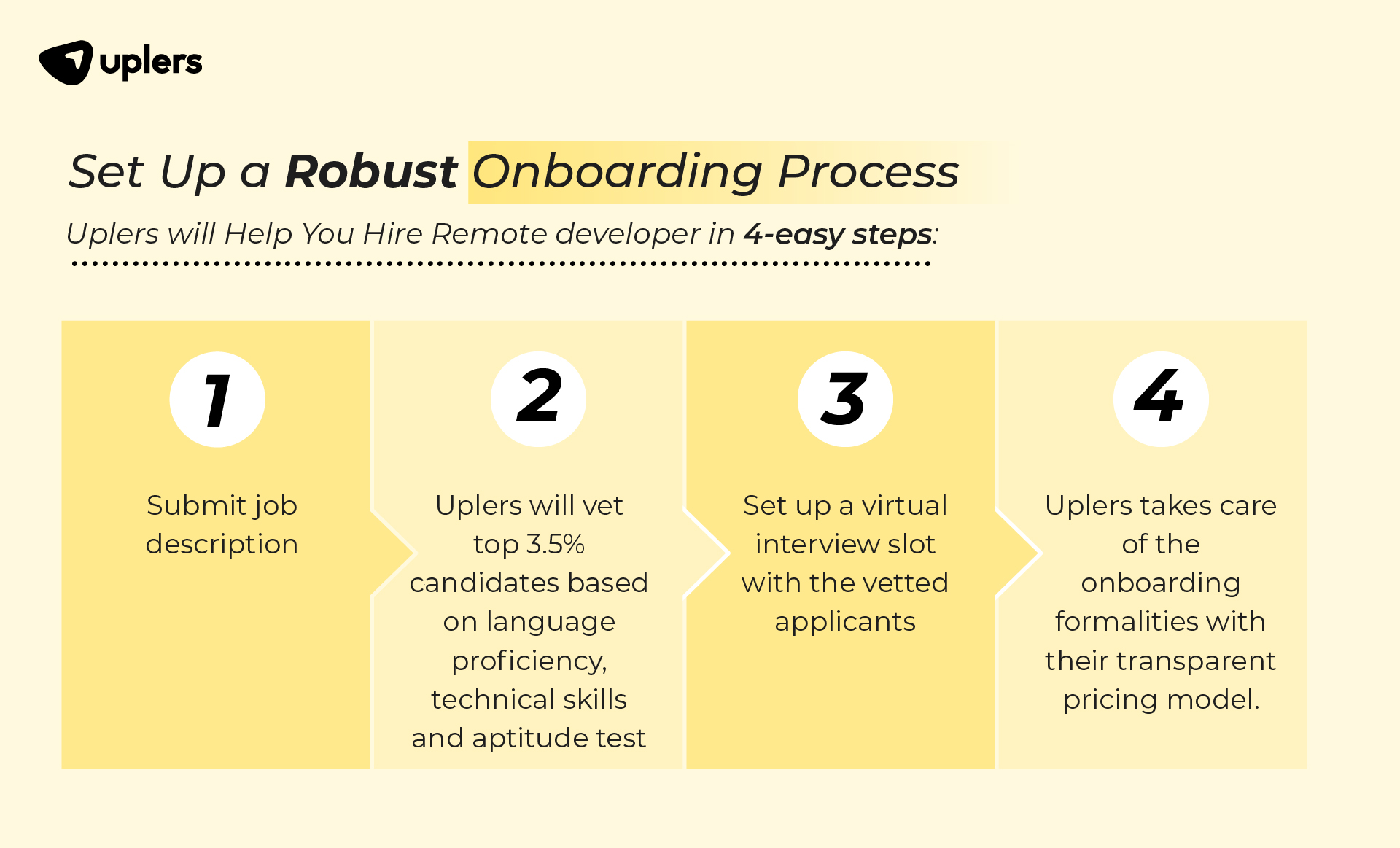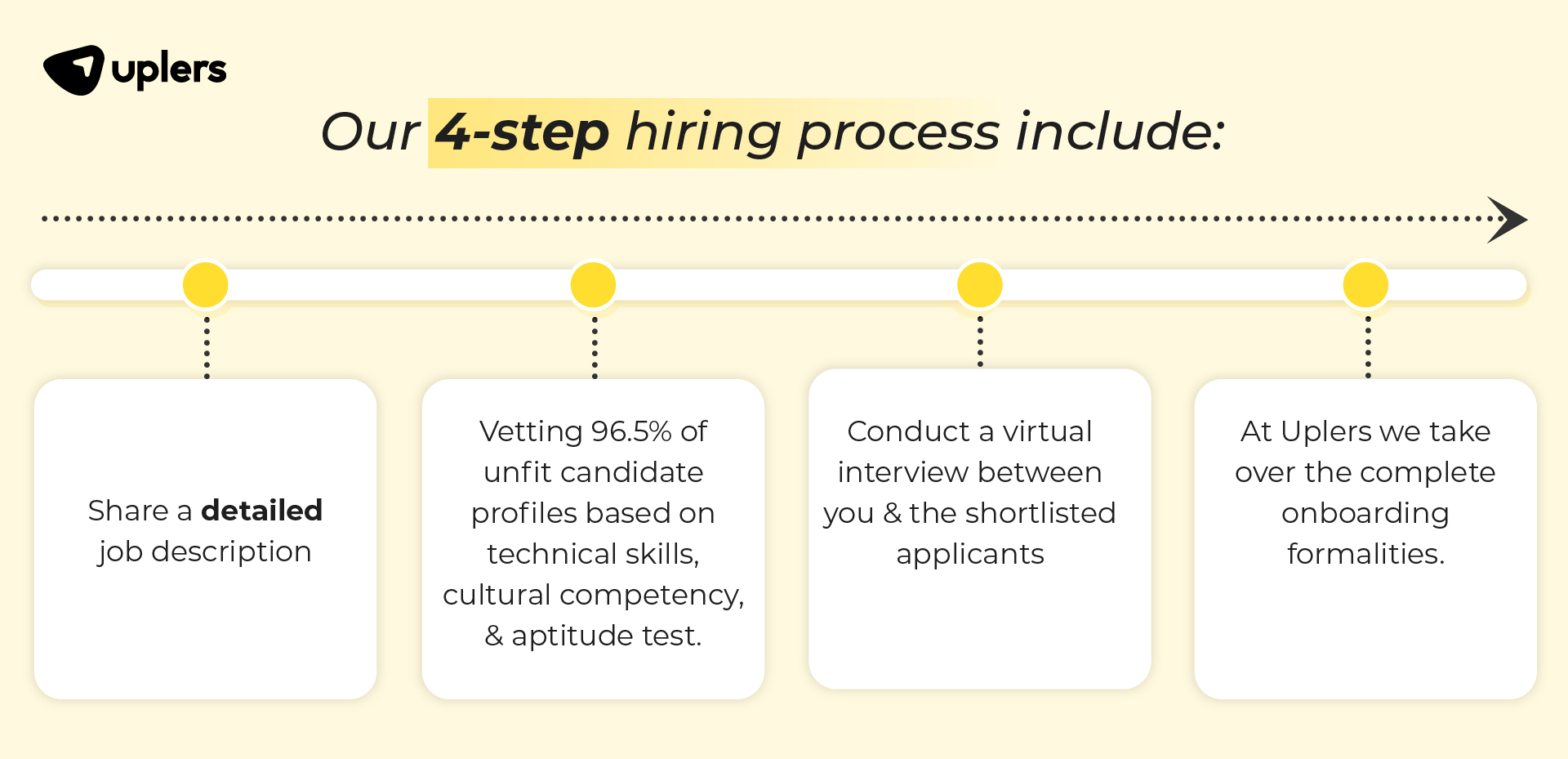From just “better JavaScript” to being the language of modern product teams, TypeScript has evolved a long way helping to move faster without breaking things.
In 2025, the definition of elite digital products is not merely how quickly they are built, but how confidently they can scale. TypeScript has emerged as the backbone of that confidence offering early error detection, seamless cross-team collaboration, and consistent logic across the entire tech stack. But to optimally leverage the potential of this language, hiring any TypeScript developer is not enough.
If you are building with performance, iteration speed, and cross-functional clarity as the focal areas, you need engineers who own the stack from frontend UX flows to backend APIs. To go a step beyond in your hiring approach, skip your traditional hiring tactics and read this blog to hire TypeScript developers that go beyond syntax and deliver product-driven, end-to-end thinking.
The Rise of Full-Stack TypeScript Development
The evolution of the JavaScript ecosystem has given rise to a new breed of developers called the TypeScript full-stack engineers. These experts leverage the same language across frontend and backend saving you the time, money, and efforts to hire distinct individuals.
With the rise of frameworks such as Next.js, NestJS, and expansion of Node.js runtime, the boundaries between frontend and backend have blurred. This concourse allows teams to:
- Maintain a unified codebase
- Share types and models between client and server
- Improve development velocity and consistency
- Onboard new team members faster
You can’t simply pause and ponder with a talent that bridges both ends of the stack. It reduces tech debt and promotes a deeper product understanding across your team. That’s where several product companies prefer to hire TypeScript developers with full-stack fluency.
Core Frontend Skills to Expect in TypeScript Developers
Despite TypeScript being inherently versatile, strong frontend skills still remain essential. This holds especially true when building polished and performant user experiences. Prioritize candidates with:
- Competence with TypeScript-first implementations of React, Vue, or Next.js.
- Knowledge of component libraries and design frameworks such as Material UI and Chakra UI.
- Knowledge of using Tailwind CSS or SCSS to create accessible, responsive user interfaces.
- Strong knowledge of state management (e.g., Redux Toolkit, Zustand).
- Putting performance first by giving Core Web Vitals, lazy loading, and image optimization top priority.
With the evolution of so many roles it’s obvious to think why hire front end web developers in 2025. This is because present-day frontend engineers aren’t simply designing interfaces – they are orchestrating the user experience for your brand across platforms. TypeScript developers with frontend expertise introduce predictability and safety to the process, minimizing runtime errors and increasing maintainability.
Backend Expertise: Node.js, APIs, and Database Handling
TypeScript shines in backend frameworks like Next.js, Express, and Fastify. These allow developers to write scalable, modular APIs with clear type definitions and dependency injection patterns.
Your ideal TypeScript backend developer should have:
- Knowledge of creating GraphQL endpoints or RESTful APIs with validation and error management.
- Understanding of ORMs for database interaction, such as TypeORM or Prisma.
- Knowledge of MongoDB, PostgreSQL, or cloud-native data stores.
- Knowledge of webhooks, background jobs, and caching.
- Basic knowledge of cloud services, CI/CD pipelines, and Docker in DevOps.
If you are scaling your backend systems remotely, it’s vital that you review and update the best practices to hire remote backend developers. This includes evaluating asynchronous communication, timezone overlap, Git-based workflows. TypeScript developers that are aligned with backend requirements can contribute meaningfully to architectural discussions and data flow planning apart from code delivery.
Evaluating TypeScript Developers for End-to-End Thinking
A great TypeScript developer is one who not only simply writes clean code, but has an understanding of the full journey of a feature from database to browser. When hiring TypeScript developers, examine:
- Portfolios or projects in which the developer has both front-end and back-end modules owned.
- Contributions to TypeScript boilerplates, packages, or open-source tools.
- Knowledge of integrating third-party APIs, such as Firebase, Auth0, and Stripe.
- Effective documentation procedures and comprehensive test coverage with Jest, Vitest, or Supertest tools.
- Clarity of communication, particularly in async-first, remote team settings.
Years of experience holds an upper hand as per the traditional hiring metrics, but in modern software teams end-to-end system thinking and problem-solving are better storm chasers of success.
If you as a product company have plans to parallelly hire JavaScript developers, this transition to TypeScript becomes more natural. This is especially notable if your codebase or platform requires greater type safety and long-term maintainability.

Benefits of Hiring Full-Stack TypeScript Talent
Hiring full-stack TypeScript developers is more than a productivity move. It’s a strategic investment in consistency, velocity, and engineering culture.
Key benefits of hiring these experts include:
Unified Language Stack
Type definitions are shared among layers, reducing duplication and mismatches.
Enhanced Developer Experience
Compile-time checks, autocompletion, and type hints minimize errors and expedite delivery.
Reduced Onboarding Time
New hires contribute more quickly when they don’t have to jump between languages as much.
Better Cross-Functional Collaboration
Full-stack developers are able to facilitate discussions regarding design, frontend, and backend with ease.
Future-readiness
The adoption of TypeScript continues across newer platforms and cloud functions.
It’s worth taking a note that India too has witnessed a plunge in full-stack TypeScript engineers, especially in talent hubs like Bengaluru, Hyderabad, and Pune. Several product companies and startups in the U.S. and Europe are building India-first squads with pre-vetted developers from platforms like Uplers.
Considering this surge in demand we aim to connect global companies with top 3.5% engineers from India. We utilize AI and human intelligence to vet these candidates from our 3M+ talent network.
Final Thoughts: Build Agile Teams with Versatile TypeScript Engineers
In the product-led, cloud-native generation, agility is everything. The future of engineering teams is no longer frontend vs. backend, it’s more about fluid and full-context problem solving.
To hire TypeScript developers who can architect APIs, build intuitive UIs, and think like product owners is not just optional but a competitive advantage. These developers help reduce dependencies, speed up sprints, and make technical decisions with business impact in view.
If you aim to build leaner, sharper, and more adaptable teams, hiring full-stack TypeScript talent is the lever of velocity and quality at scale. Right now could be the best time for you to level up your developer hiring strategy.













